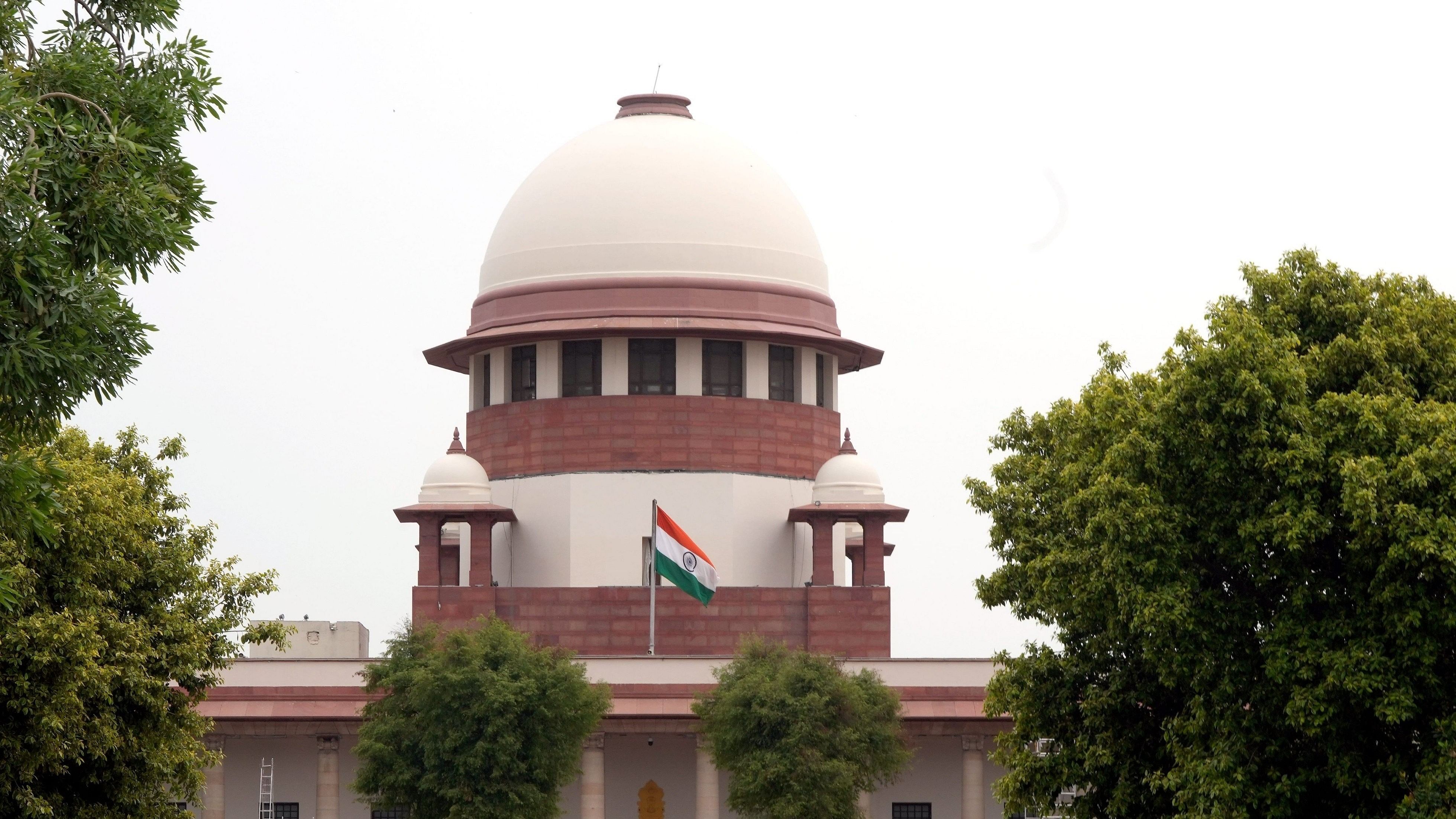
The Supreme Court of India.
Credit: PTI File Photo
New Delhi: The Supreme Court on Thursday said there was a vital national interest in ensuring that process of arbitration was fair and private sector has faith in the alternative dispute resolution mechanism for making investments in the country.
A five-judge constitution bench headed by Chief Justice D Y Chandrachud observed that governmental interest was not only in getting favourable outcomes in arbitrations.
The bench, also comprising justices Hrishikesh Roy, P S Narasimha, J B Pardiwala and Manoj Misra, is hearing arguments on the vexed legal question of whether a person ineligible to become an arbitrator can nominate another as one.
Solicitor General Tushar Mehta told the bench that the government was interested in ensuring that arbitration as an alternative dispute resolution mechanism grows and whatever were the hindrances or what was preventing people from going into arbitration, especially the government agencies, was taken care of.
"One perspective which the government must also bear in mind is, if we are now today in an economy where we feel that private investment is crucial for the growth of the nation... there is a vital public interest or national interest in ensuring that the process of arbitration is fair," the CJI observed.
"Equally the government, representing the nation, has to be concerned of the fact that you must have the faith of the private sector in the arbitration process to invest. It is not just foreign investors, but domestic investors also," the bench said.
At the outset, the solicitor general said arbitration has necessarily its roots in the contract and contract, by necessary definition, is an act of volition.
The bench observed there were some wonderful and amazing arbitrators "but we also have both ends of the spectrum today".
"Would you be therefore contemplating a situation where the Government of India prepares a panel (of arbitrators) for all undertakings of the Government of India...," the bench observed.
Mehta responded, "My personal answer is yes. I will take instructions." Giving example of public procurement, the solicitor general said the Centre makes the policy which was binding on all public sector undertakings (PSUs).
The day-long arguments in the matter remained inconclusive and would continue on Friday.
The apex court had on Wednesday commenced hearing arguments on the legal issue.
It had heard submissions relating to provisions of the Arbitration and Conciliation Act, 1996, including the one on appointment of arbitrators.
Two references were made by three-judge apex court benches in 2021 for constitution of a larger bench to consider the issue.
The apex court had in 2017 and 2020 held that a person not eligible to become an arbitrator cannot nominate another person as one. However, in another matter in 2020, the top court had allowed the appointment made by a person who was ineligible to become an arbitrator.
The top court is now adjudicating the knotty issue.
The CJI had in June last year constituted a five-judge constitution bench to examine it.
On February 21, the Centre had told the apex court that an expert committee headed by former law secretary T K Vishwanathan has submitted its report on proposed reforms in the arbitration sector to the law ministry.
Amid a push for making India a hub of international arbitration, the government had set up an expert panel led by Vishwanathan to recommend reforms in the Arbitration and Conciliation Act in order to reduce the burden on courts.